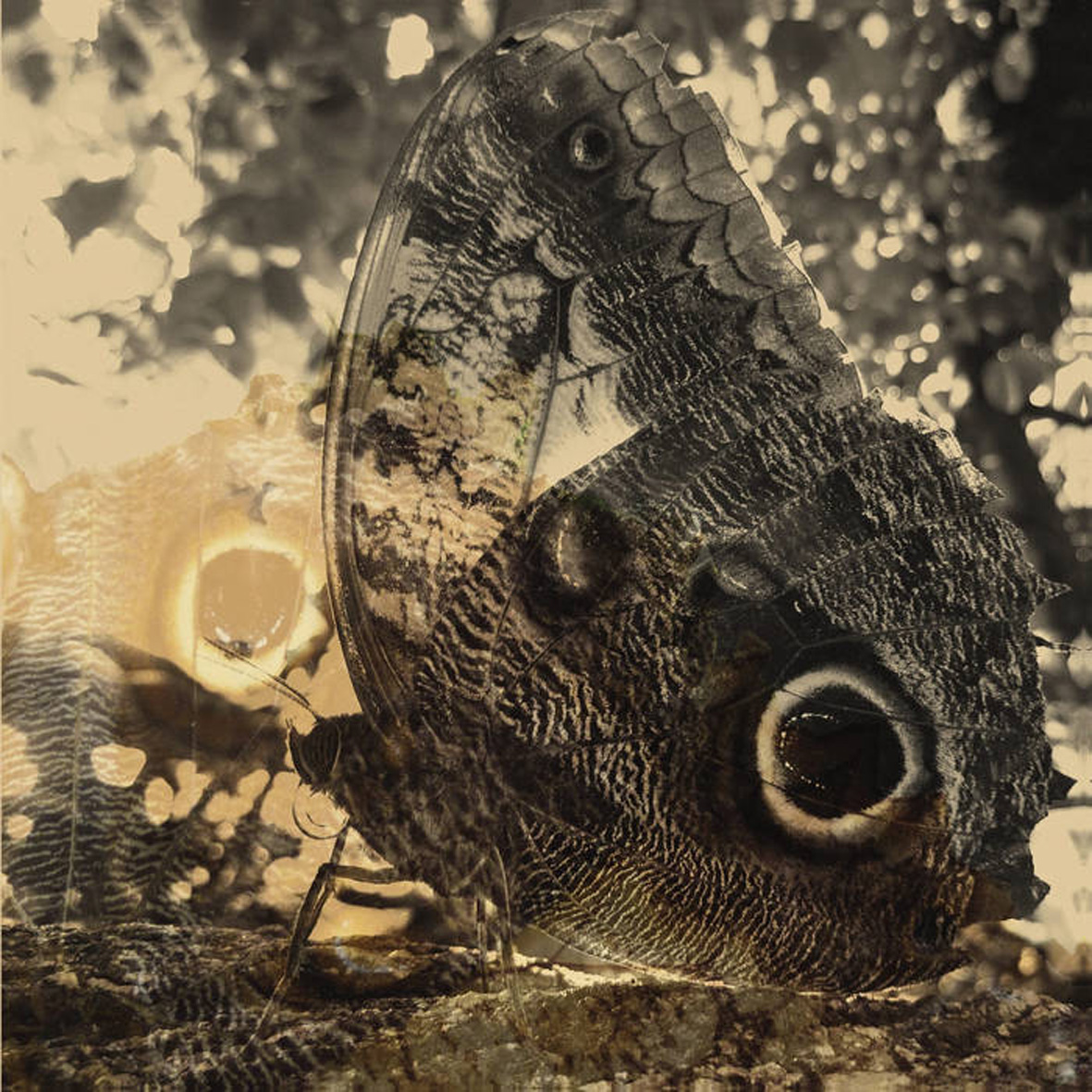Louise Landes Levi, "IKIRU or The Wanderer"
 This unique album quietly surfaced back in April, but it is one of 2018's most wonderfully unexpected releases, as it is the first of Landes Levi's recordings to ever be made widely available. Although she has amassed a small cult following through her releases on Belgium's Sloow Tapes, Landes Levi has largely remained an obscure figure in music circles, rarely recording and jokingly describing herself in a recent Wire interview as a "street musician made good." It would be more apt to describe her as reluctant drone royalty, however, as she co-founded The Floating Lotus Magic Opera Company in the '60s, an ensemble that also included folks like Terry Riley and Angus MacLise. She also studied with La Monte Young and an improbable host of legendary Indian musicians over the years. On IKIRU, Landes Levi is joined by luminaries of a different sort, as her haunting sarangi melodies are backed by Belgian underground veterans Bart de Paepe and Timo von Luijk. IKIRU would have certainly been a mournfully lovely album with just Landes Levi's unadorned sarangi playing, but her sympathetic collaborators take her viscerally elegiac vision into wonderfully ritualistic and hallucinatory deep-psych territory.
This unique album quietly surfaced back in April, but it is one of 2018's most wonderfully unexpected releases, as it is the first of Landes Levi's recordings to ever be made widely available. Although she has amassed a small cult following through her releases on Belgium's Sloow Tapes, Landes Levi has largely remained an obscure figure in music circles, rarely recording and jokingly describing herself in a recent Wire interview as a "street musician made good." It would be more apt to describe her as reluctant drone royalty, however, as she co-founded The Floating Lotus Magic Opera Company in the '60s, an ensemble that also included folks like Terry Riley and Angus MacLise. She also studied with La Monte Young and an improbable host of legendary Indian musicians over the years. On IKIRU, Landes Levi is joined by luminaries of a different sort, as her haunting sarangi melodies are backed by Belgian underground veterans Bart de Paepe and Timo von Luijk. IKIRU would have certainly been a mournfully lovely album with just Landes Levi's unadorned sarangi playing, but her sympathetic collaborators take her viscerally elegiac vision into wonderfully ritualistic and hallucinatory deep-psych territory.
As with all Oaken Palace releases, IKIRU ("to grow") is an album with a deep sense of purpose, as the label exists to donate all of their profits to environmental charities.The inspiration for this particular entry in the series is the declining population of Monarch butterflies, which gets explicitly addressed with an excerpt from an Ira Cohen poem at the beginning of "Butterfly Brain" (Landes Levi is primarily a poet herself).For the most part though, IKIRU has the otherworldly feeling of a timeless ceremony in a remote and ruined temple.Aside from that brief spoken interlude, both of the sidelong pieces that compose IKIRU are quite similar in structure, unfolding as achingly beautiful sarangi solos that alternately moan with anguish and transcendently blossom into ephemeral snatches of soaring melody.I suspect these pieces were both improvised around a loose central motif rather than composed, as there are occasional stretches were the sarangi falls silent or blends into the background, yet Landes Levi's playing is deeply evocative, affecting, and sublime–her melodies often feel like a darkly lovely and heartfelt requiem for all of life on earth.That said, it is not an oppressively sad album by any means.Instead, it feels like something quite novel: a languorously unfolding dreamscape that billows outward from a heavenly melodic thread that winds through it like a stream or a drifting tendril of opium smoke.
While IKIRU is ostensibly a Landes Levi solo release, the contributions of de Paepe and van Luijk play a crucial role in crafting album's beguiling spell.Occasionally, the pair creep into the foreground with a brief zither melody, but primarily focus themselves on crafting a ghostly and ceremonial sounding backdrop for Landes Levi's lyrical melodies to elegantly float, twist, moan, and churn through.On the opening "Butterfly Graveyard," for example, the duo use thundersheets to create a deep, gong-like pulse.There are also occasional accordion drones that billow up from the depths, as well as a strange and fascinating layer of field recordings.I would love to know where and why the recording was taken, as it seems to have nothing to with butterflies.Or maybe it does, as it is very easy to imagine that the quiet sounds of butterflies would be eclipsed by most other natural sounds, no matter how many are present (a vast, fluttering cloud of butterflies could easily be drowned out by a single insistent bird).In any case, the natural sounds are weirdly perfect in this context, as the deep exhalation-like whooshes and the chorus of jabbering woodland creatures contribute beautifully to the piece’s deeply meditative feel and sense of place.No little animal friends join the trio on the more nocturnal and dreamlike "Butterfly Brain," sadly, but they are replaced by a spectral trail of blurry and uneasily harmonizing mellotron drones from van Luijk.The percussion is quite different as well, as the lingering gong-like tones have a submerged feeling that evokes a secret underwater grotto.Both pieces are absolutely wonderful and complement each other nicely.
In hindsight, it is very easy to understand why Landes Levi has had such a sparse and elusive recording history, as she has spent much of her life traveling extensively, studying Indian music and poetry, translating, and writing prolifically.Also, the world has not exactly been clamoring for solo sarangi albums or Eastern devotional music, though appreciation for the pioneering work of kindred spirits La Monte Young and Catherine Christer Hennix has happily increased in recent years.Consequently, it is the perfect time for Landes Levi to finally claim her place in the pantheon of Eastern-influenced drone luminaries.Musically, Landes Levi is not unlike an orchid: she is excellent musician, but she needs exactly the right environment for her art to blossom into something strikingly beautiful and unique.With de Paepe and van Luijk, she found precisely that and her vision fully blooms with IKIRU.Louise Landes Levi is a singular person and this album is the one that finally befits that.Of course, I also loved her 2014 collaboration with Christer Hennix (From The Ming Oracle), but IKIRU is on a different plane altogether, easily ranking among the strongest and most memorable albums that any of the three participants have ever been involved in.



